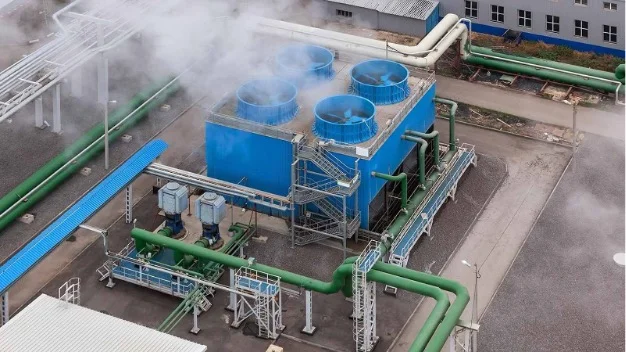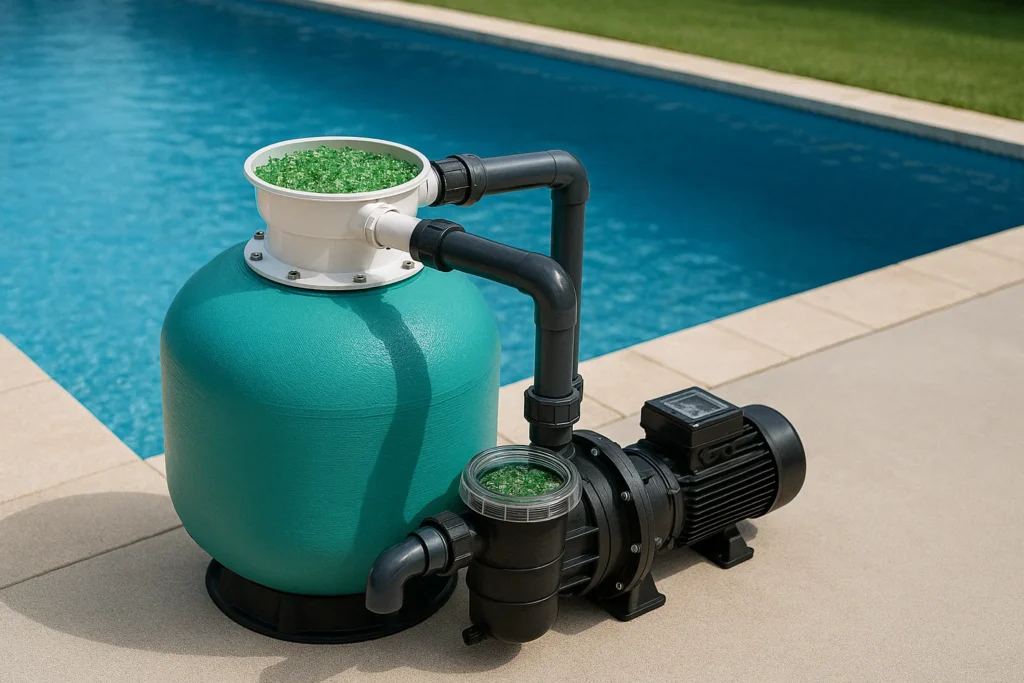
Filtration is an important process in many applications, including water treatment, pool maintenance, and industrial processes. While sand filtration has been the traditional method of choice for many years, glass filtration is emerging as a popular alternative due to its superior filtration efficiency and durability.
Glass filtration media is an innovative alternative to traditional sand filtration in industrial applications. With its superior filtering capabilities, glass filtration media offers a number of advantages over traditional sand filtration. In this blog, we’ll explore the top 5 advantages of glass filtration media for industrial filtration:
- Superior Filtration Efficiency – Glass filtration media has a higher filtration efficiency than sand due to its smaller particle size and greater surface area. This means that glass media can capture smaller particles and contaminants that sand cannot, resulting in cleaner water and better filtration performance.
- Longer lifespan – Glass filtration media has a longer lifespan than traditional sand filters. This is due to the fact that glass media does not break down over time like sand does, which can cause clogging and a decrease in filtration efficiency. Glass media can also withstand higher temperatures and chemical exposure, making it more durable and reliable than sand.
- No Biofilm Formation – Glass media has a larger surface area than sand media, a high porosity that allows water to flow freely, and is inert and smooth, making it more difficult for bacteria to attach and form biofilms. These properties make glass media a more effective and efficient option for preventing biofilm formation in water filtration systems.
- Lower Maintenance Costs – Due to its superior filtering capabilities and longer lifespan, glass filtration media requires less maintenance than traditional sand filters. This means that businesses can save money on maintenance costs and reduce downtime associated with filter replacement and cleaning. Additionally, glass media does not require a special backwash system, which can further reduce maintenance costs.
- Increased Flow Rates – Glass filtration media can handle higher flow rates than sand filters. This is due to the fact that glass media has a lower density than sand, which allows for greater water flow through the filter. This increased flow rate can improve the overall efficiency of industrial filtration systems, leading to higher productivity and reduced downtime.
In conclusion, glass filtration media offers several advantages over traditional sand filters for industrial filtration applications. With its superior filtration efficiency, longer lifespan, eco-friendliness, lower maintenance costs, and increased flow rates, glass filtration media is a smart choice for businesses looking to improve their filtration performance while reducing costs and environmental impact.
So, why not make the switch to glass filtration media today and start enjoying these benefits for yourself?
Get in touch with us at innfo@purewaterent.net, and know more about how our filtration technologies can help you achieve superior filtration in your projects.





